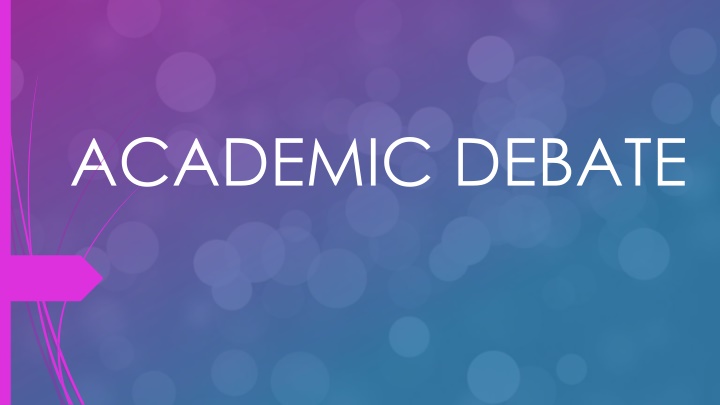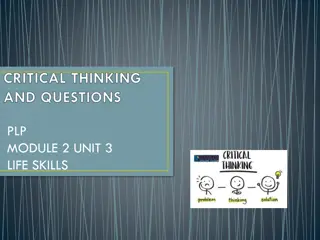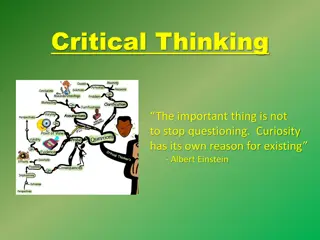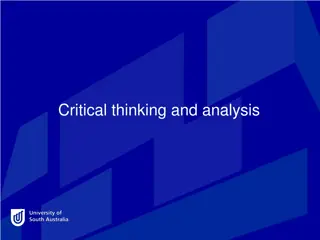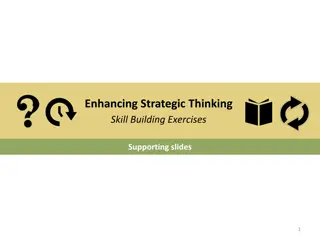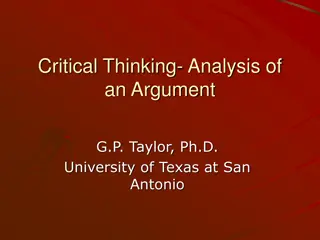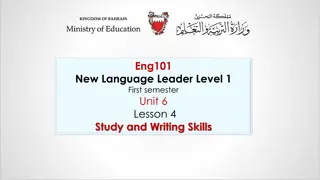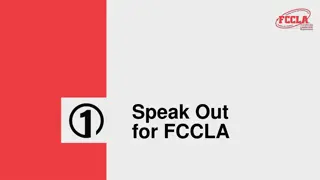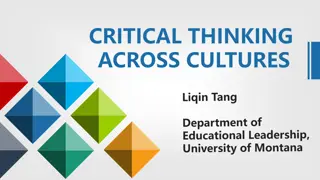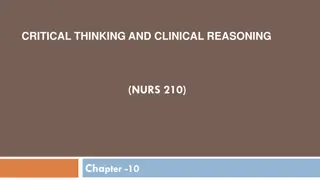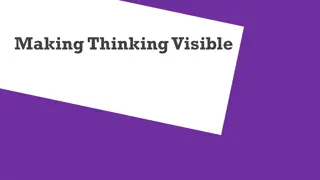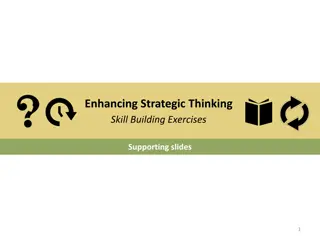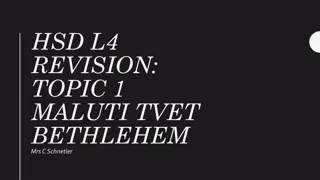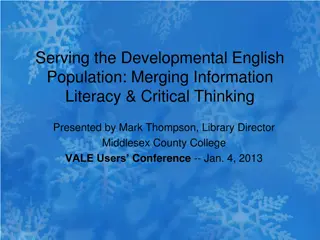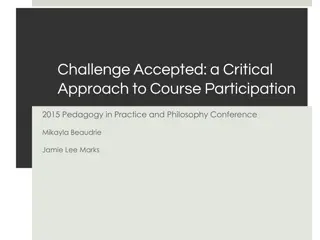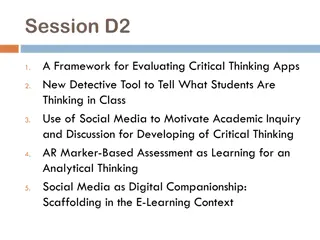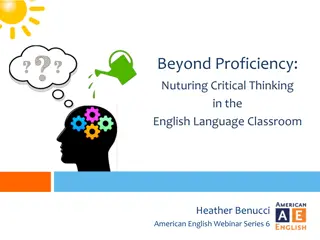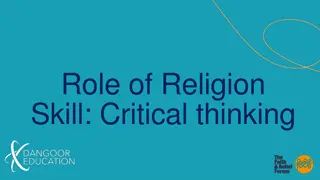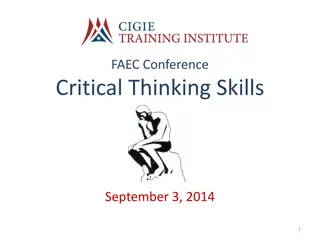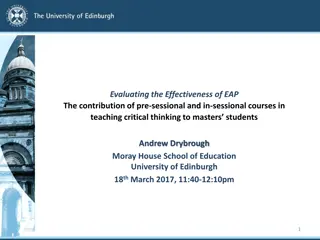Enhancing Critical Thinking Skills
Cultivate critical thinking through clarity, accuracy, precision, and relevance. Dive into standards of thinking to strengthen your arguments and improve logical reasoning.
Download Presentation

Please find below an Image/Link to download the presentation.
The content on the website is provided AS IS for your information and personal use only. It may not be sold, licensed, or shared on other websites without obtaining consent from the author.If you encounter any issues during the download, it is possible that the publisher has removed the file from their server.
You are allowed to download the files provided on this website for personal or commercial use, subject to the condition that they are used lawfully. All files are the property of their respective owners.
The content on the website is provided AS IS for your information and personal use only. It may not be sold, licensed, or shared on other websites without obtaining consent from the author.
E N D
Presentation Transcript
What is critical thinking ?!
Is the ability to think clearly and rationally?? Critical thinking is thinking about your thinking while you are thinking in order to make your thinking better.
The standards of thinking A collection of criteria that strength your claim and evidence
clarity relevance logicalness significant Accuracy breadth depth precision
Clarity Deal with question like: Could you give me more example? Could you elaborate more on that point?
Converting unclear statement Suppose you and your fiends are having a discussion about smart phones. So , one of your friends comes and say I don t like Samsung Galaxy !
She could say I dont like it because its too big, or I m not use to such a devices.
Accuracy Deals with the following questions Is that true? How could we find if it s true?
Can you think of a statement you heard recently that was accurate ? clear but not
Precision Deals with questions like: Could you give me more details ? Could you be more specific?
Relevance Deals with questions like: How is this idea connected to the question? How is this idea related to that idea?
Depth Deals with the following questions: How can your answer solve the problem?
Breadth Deals with questions like: Do we need to consider another point of view? Is there other way to solve the problem?
Logicalness - Significance Logicalness: When the combined thoughts are mutually supported and make sense in combination, the thinking is logical. Significance: When we reason through issues , we want to concentrate on the most important information in our reasoning and take into account the most important ideas or concepts.
Did you asked your self : What does it mean to be an educated person?
Fairness Fairness: When we think through problems, we want to make sure that our thinking is justified . Please think of unjustified statements To be justified : Is to think fairly in context. To think accord with reason.
Purpose, Goal, or End in view Whenever we reason, we do so to some end, to achieve an objective, to satisfy some desire or fulfill a need. As a developing critical thinker, then you should Get in the habit of explicitly stating the purpose you are trying to accomplish.
You should be clear about your purpose. For example- lets say that your purpose is to help your children develop as life-long learners and contributing members of society.
Question at issue or problem to be solved Whenever something through, there is at least one question to answer one question that emerges from the problem to be solved or issue to resolve. you attempt to reason
Point of view or frame of reference Critical thinkers?? Whenever we reason, we must reason within some point of view or frame of reference . A point of view may be too narrow, may be based on false or misleading information and may be unfair.
Information, Data and Experiences Whenever we reason there is some stuff", some phenomena about which we are reasoning . Those who reason should be assessed on their ability to give evidence that is gathered and reported clearly. Therefore, as a developing thinker ,you should assess the information you use to come to conclusions.
Concepts, Theories, Ideas All reasoning use some ideas or concepts and not others. These concepts include the theories, principles, axioms, and rules in our reasoning. As an aspiring critical thinker, you begin to focus more deeply on the concepts you use.
Assumptions All reasoning must begin somewhere. It must take some things for granted. Assessing skills of reasoning involves assessing our ability to recognize and articulate assumptions, our assumptions may be clear or unclear, justifiable or unjustifiable, consistent or contradictory.
Implication and consequences Whenever we reason, implication follow from our reasoning. No matter where we stop tracing implications, there always be further implications. Any defect in our ability to follow the implications or consequences of our reasoning is a potential source of problems in our thinking.
Inferences All reasoning proceeds by steps in which we reason as follow: Because this is so, that also is so or Because this, therefore that. That mind perceives a situation or a set of facts and come to a conclusion based on those facts. When this step of the mind occurs, an inferences is made.
Using intellectual standards to assess your thinking purpose Clarity Significance Achievability Consistency Question at issue or central problem Clarity and precision Significance Answerability Relevance
Using intellectual standards to assess your thinking Concepts and ideas Clarity relevance Depth Accuracy Assumptions Clarity Justifiability Consistency
